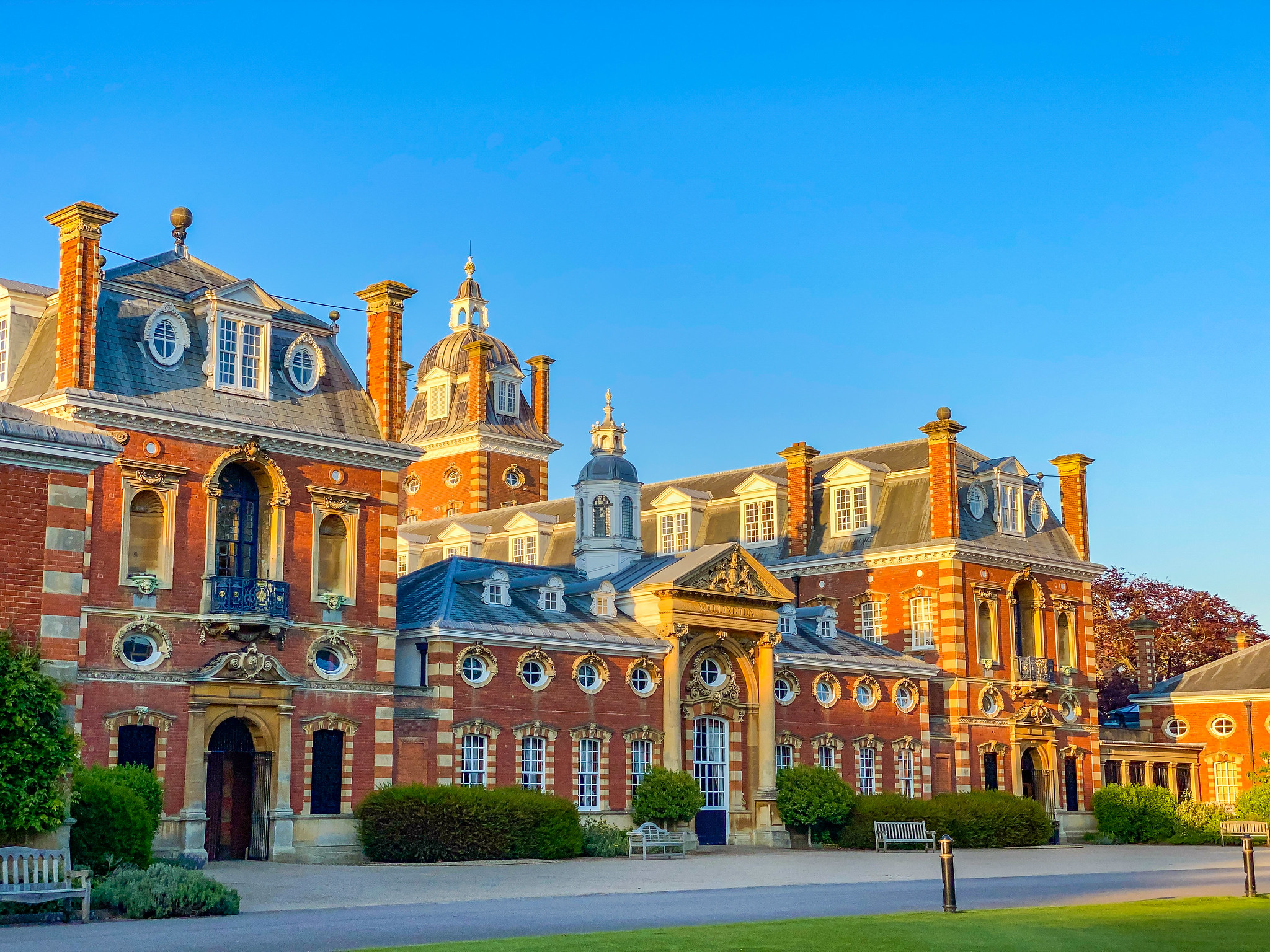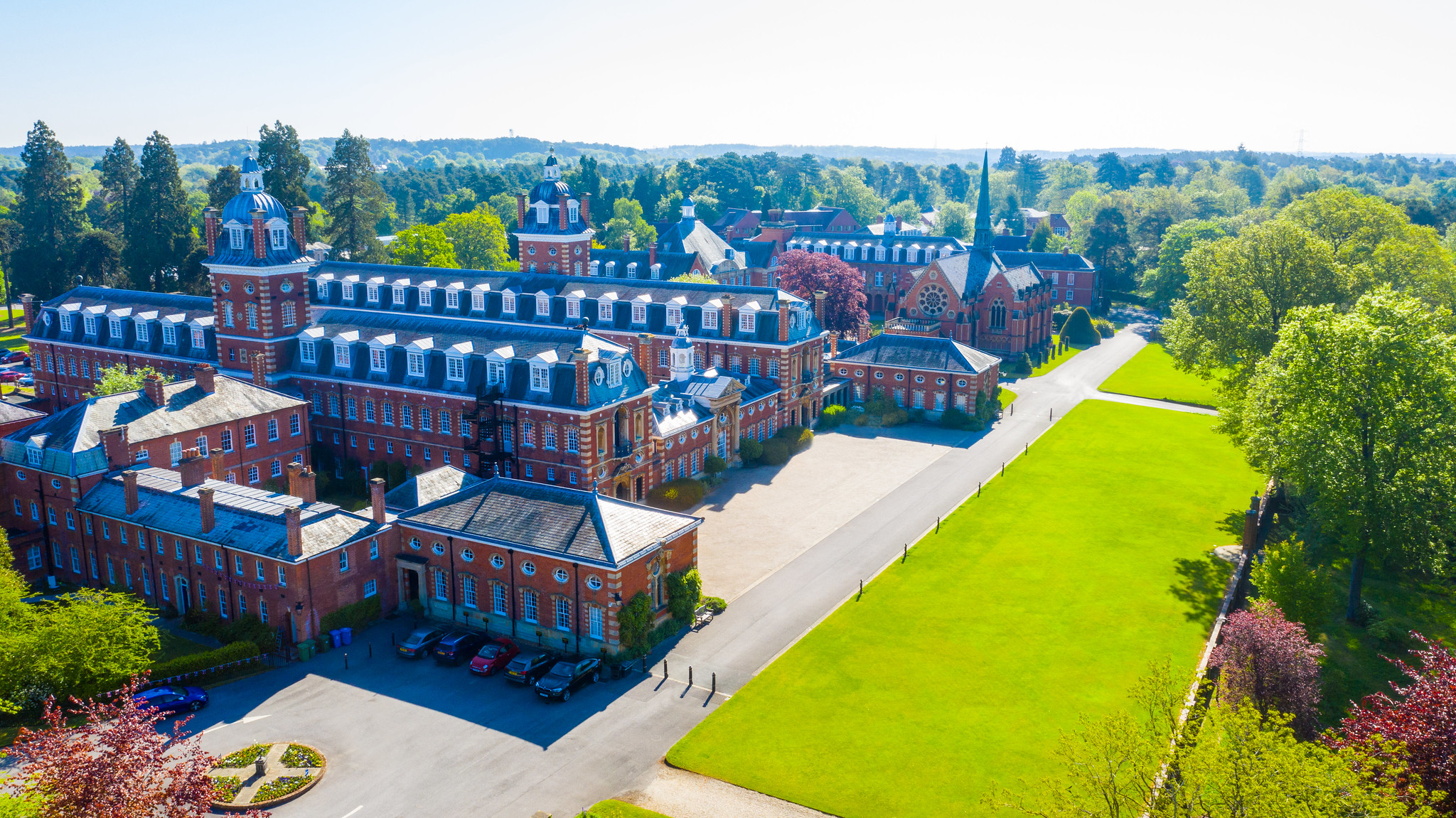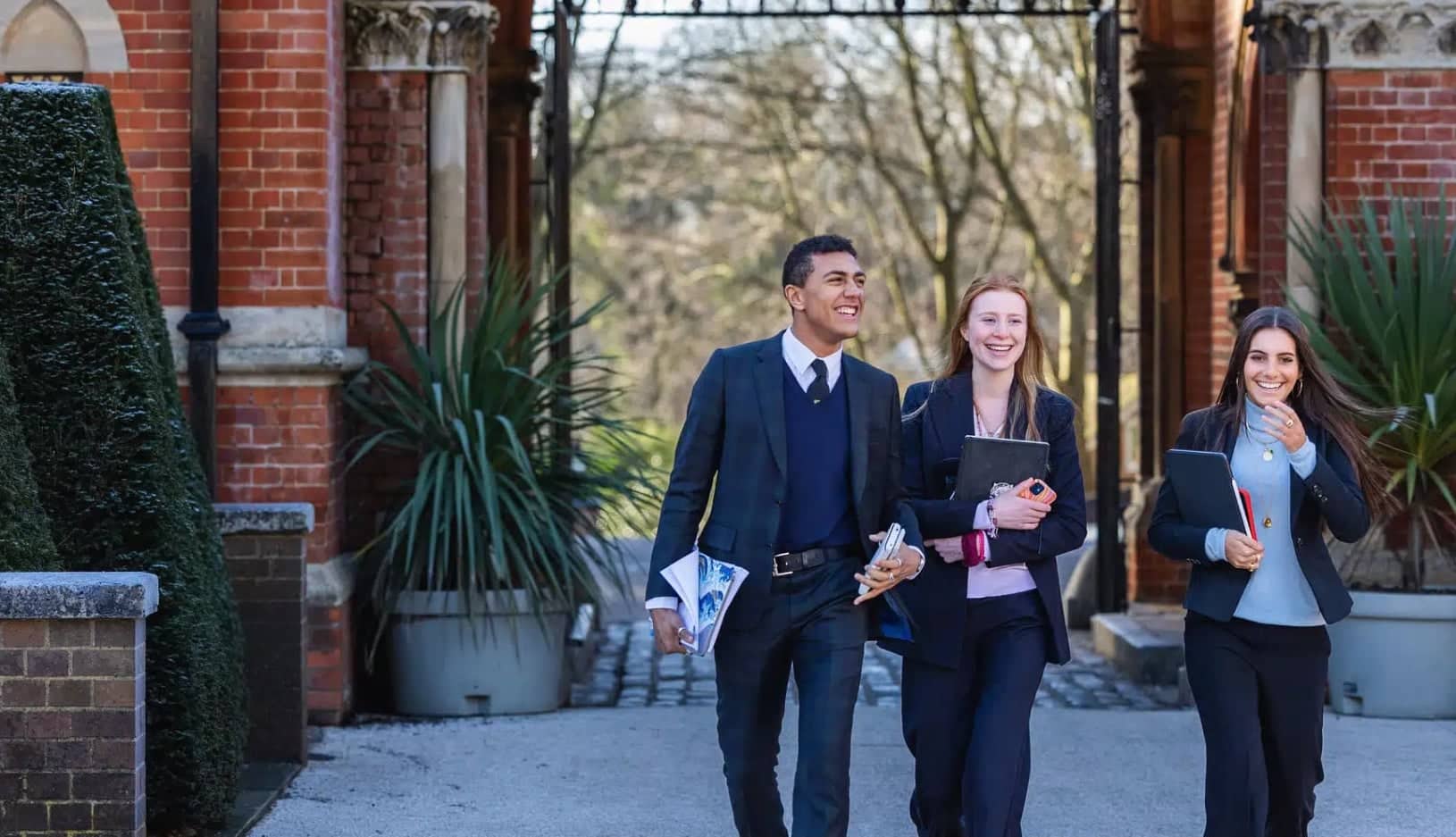Upper School Academic Scholarship Programme
The Upper School Scholars’ Programme is designed to encourage students to develop their critical thinking skills, and to engage in inter-disciplinary learning. Admissions tutors at top universities frequently cite these areas as the most desirable skills for candidates to have, so, whilst focus on students’ enjoyment of this learning, the programme aims to help prepare students for university applications, and the development of their own areas of interest and speciality. The programme is designed to complement subject specialist extension held within individual departments.
During Michaelmas term, our Scholars meet in small groups to discuss a central theme for a variety of different perspectives. This year the scholars discussed the theme of the Anthropocene, working with a variety of staff to consider the scientific, environmental, historical and cultural consequences. For example, they worked with Dr Patterson (Head of ESS) to consider the empirical evidence of human impact and debate the start date of the Anthropocene.
During the Lent term, Academic Scholars have the opportunity to work in pairs to consider an issue from an interdisciplinary perspective, they then present their paper and chair a discussion on it. Three pairs are selected to present a summary of their findings at a formal black tie dinner in the summer term with the winning pair getting the opportunity to present their findings as part of the ‘Power of Youth’ session at the Youth Form Switzerland. This year Rufus and Ella presented on the disparity of care for marginalised vs non-marginalised groups in society.
During the Michaelmas term of their Upper Sixth, our Academic Scholars work with department specialists, Oxbridge and University advisors to prepare for university applications.
Academic Extension
Fireside Talks
Every Monday evening Wellingtonians have the opportunity to listen and question eminent figures from a variety of fields. The Fireside talk series gives our students the opportunity to engage with a wide range of ideas, question their preconceptions. Over recent years we’ve had everyone from David Olusoga to Afua Hirsch, Andrew Strauss to Ron Dennis, Lord Woolley to Lord Strathclyde, Ros Atkins to Prof Lewis Dartnell and many, many more. The Q&A, that is a major element of the talks, is often animated, drawing questions from students from all year groups.
Academic Clubs & Societies
In all about 150 co-curricular activities are available, and 70 clubs and societies provide unique opportunities, from WTV (Wellington’s own television company) to the pupil-run radio station, DukeBox, which broadcasts 24/7, reaching listeners in 41 countries across the globe. Ensuring a wide breadth of activities is key to the success of the co-curricular programme and popular additions in recent years have included MedSoc, Girls’ Football, Fem Soc, Culture Soc, LGBTQ+ Soc and ArchiSoc for pupils interested in architecture.
Full details of all our academic clubs & societies can be found at Academic Extension Programme. Search by interest, year group and time slot.
Essay Competitions
Sixth Form students are encouraged to participate in prestigious essay, enriching their academic pursuits. Below, you’ll find some exemplary opportunities:
John Locke Essay Competition
Essay competition judged by Oxford university professors with the choice of 3 essays across 7 different subjects: Philosophy, Politics, Economics, History, Psychology, Theology and Law.
Libra Essay Competition
An essay competition that takes its inspiration from the admissions process at All Souls College, Oxford – known as ‘The hardest exam in the world’ – you are required to write an essay responding to one of the single-word essay title below:
New College of Humanities
Essay competitions in History of Art, Economics, English, History, Law, Philosophy, Politics and International Relations. Earlier than other essay competitions aimed at L6th pupils in Michaelmas.
Fitzwilliam College, Cambridge
Classics and Ancient History, History, Archaeology, Land Economy (highly suitable for geographers and economists), Medieval World, Slavonic Studies and Architecture
St Hugh’s College, Oxford
Julia Wood (History), Mary Renault (Classical Reception), Kavita Singh (Philosophy, Politics and Economics) and Gwyneth Bebb (Law).
Committees
The Student Committees are made up of Lower VI student leaders who have a drive to have a positive impact on the College. There are six committees, each addressing a different aspect of College life: EDI, Environment, Community, Education, Sustainability. Each committee is made up of two or three students and are supported by staff mentors who guide and facilitate the projects the committees undertake. The committees organise advisory groups who help to develop their understanding of the needs and concerns of the wider student body, they also conduct surveys and focus groups in houses to keep their finger on the pulse of student opinion. Student Committees don’t just raise issues to be solved by the College staff, they offer solutions and implement schemes and events around the College to meet the needs of Wellingtonians. This year, Student Committees have suggested reforms to the dining arrangement at Wellington, consulted on the use of AI in education, they have organised games, themed days and assemblies, and much more.
Leadership
All Wellington sixth form students are regarded as leaders, serving as role models for younger year groups and they have lots of opportunities to positively influence the school environment. These opportunities span various activities such as leading sports teams, participating in co-curricular pursuits, guiding CCF groups, organizing house events, advocating as mental health or EDI ambassadors, applying for prefect roles, chairing committees, and leading by example in setting academic and behavioural standards aligned with the College’s Values.
During the Lent term, lower sixth students are offered a leadership assignment that prompts them to reflect on their personal experiences and values while engaging with current research on leadership.
Furthermore, students can opt to participate in the “Welly Leaders” program held on Wednesday afternoons. Through this program, they delve deeper into the foundational principles of effective leadership, contribute to organizing a Festival of Leadership for external schools, initiate their own social action projects, and become part of our Global Social Leaders movement.
House leadership
Each house has a Head of House, Deputy Head of House and a house prefect team. The house prefects are selected in the Lent term of the Lower Sixth, and their tenure runs from April to April each year. Heads of House are also automatically elected as College prefects.
Heads of House and their prefect teams play an active role in the leadership of the house and meet regularly with HMs to discuss targets and challenges. The Head of House, Deputy Head of House and Third Form prefects play particularly pivotal roles in helping the newest pupils to settle at the beginning of each academic year and in many boarding houses have responsibilities, for example, in ensuring the Third Formers go to bed quietly and on time, as well as acting as invaluable mentors. House prefects take sole responsibility for house entries into our principal interhouse competitions – house singing and house dance – as well as organising sports teams for interhouse sports events and helping to organise house charity events.
In addition to the prefect team, each house has two mental health ambassadors and two inclusion ambassadors in the Lower Sixth, who receive formal training that enables them to help others, and to drive positive change in their houses.
DofE in Sixth Form
DofE Gold is offered at Wellington spanning the Lower and Upper 6th Form. The Gold award is the pinnacle of the DofE awards and demands a commitment from our students although most students find that the DofE awards require very little extra commitment of time. The Gold award consists of 5 sections that need to be completed before a successful pass:
Volunteering
This section is usually completed as part of the Wednesday afternoon program, whether they choose CCF or Global Citizenship there are possibilities for a successful sign off. Day students often choose to do activities in their local area at local charities or sports clubs.
Skills
This section is usually a chance for the students to show off their drama, music, art or another creative skill, LAMDA lessons are extremely popular for this area. The options for this section are massive, sports and dance are excluded because they have their own section.
Physical
This section allows students to use their college sport option to prove their participation. Others use the sports that they participate in out of Wellington. Either way this is a highly achievable section.
Residential
This section exists only at Gold, students are challenged to go independently on a 5 day 4 night trip where they meet new people, in a new location, following a planned program and staying in group accommodation. Options for this are vast and students are supported to find the right option for them. Students have attended University preparation weeks, cookery courses, outdoor activity weeks, skills training programs and many more.
Expedition
his is the highlight of the DofE and often the only section students will talk about. At Wellington we train on the practice expedition, so that students don’t have to spend time every week learning the skills. This means that we have reduced the work load during the Wellington week. The expedition section has 2 essential elements, practice and assessment. The practice expedition is run in the Easter holidays and the assessment is run in the Summer holidays. We try to make it as exciting as possible and it’s normal for the students to explore the Scottish Highlands, or cross Scotland via the Great Glens Canoe Trail. It’s an incredible experience.
Students have the option for direct entry or to continue their DofE pathway from Silver. The difference is the time it takes to be successful. Direct entrants perform one section for 18 months, the others take 12 months. Continuation students have 12 months and 6 month sections to perform. All the sections can be completed simultaneously and demand a commitment of 1 hour a week (except expedition and residential). At the end of this program students submit their assessor reports and are offered the opportunity to attend an award presentation at a Royal Palace, usually Buckingham or St James’s.
Once a Gold award is achieved, the DofE say that a student is more employable and has a higher chance of attending a university course of their choice. What we know is that the students will have had a brilliant experience and have some extremely compelling stories of their time on expedition and achieving their Gold award.
Global Citizenship
A global citizen is someone who is aware of and understands the wider world – and their place in it. They are a citizen of the world. They take an active role in their community and work with others to make our planet more peaceful, sustainable and fairer.
Oxfam, 2024
The UN’s Global Education First Initiative notes, “It is not enough for education to produce individuals who can read, write and count. Education must fully assume its central role in helping people to forge more just, peaceful, tolerant and inclusive societies.” … “These same educational outcomes prepare students to be successful in the workplace of the 21st century as well”. (United Nations, 2024)
Wellington College offers a range of experiential learning opportunities that give pupils the opportunity to complement academic learning and understand their role in the world, to aid their transition to empowered engaged social change-makers who will have a positive impact in society.
Opportunities for Sixth Form pupils can include being part of WCPCI (Wellington College Peace and Conflict Institute), Welly Leaders (a part of the Wellington Coaching and Leadership Institute), Global Social Leaders and Social Justice. For more details please visit the Global Citizenship page.








